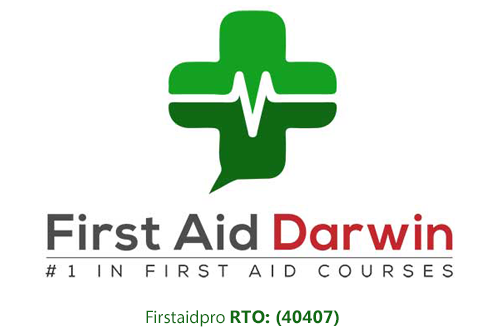7 tips to stay healthy when working night shifts: Many businesses operate through the night, which makes the night shift a necessary part of a regular workday.
However, working at night can present challenges and a variety of health issues. In this article, we explore the health effects of working night shifts and how to combat them.
Working Night Shift: The Health Effects
Several researches are published about night shift work as it comprises several aspects of health and safety and can affect individuals at the biological levels.
If not practised properly, working the night shift can negatively affect both physical and mental health. Some of the effects may include:
Disruption Of The Body’s Circadian Rhythm
The body has an internal “clock” that regulates the timing of many physiological processes, including the sleep-wake cycle. When you work the night shift, there can be disruption on the clock, which can result in various health problems such as insomnia, fatigue, and difficulty concentrating.
Increased Risk Of Cancer
Studies have shown that people working at night have an increased risk of developing certain types of cancer, such as breast and prostate cancer. This may be due to the disruption of the body’s circadian rhythm and the significant changes in the body’s hormone levels.
Cardiovascular Disease
Working the night shift has been linked to an increased risk of cardiovascular disease, including heart attacks and stroke. This may be due to the fact that shift work can disrupt the body’s natural patterns of sleep and physical activity, which can lead to high blood pressure and changes in cholesterol levels.
Gastrointestinal Problems
Night shift work can lead to gastrointestinal problems, such as acid reflux, ulcers, and irritable bowel syndrome (IBS). This may be because of the disruption of the body’s natural digestion patterns when working at night.
Metabolic Disorders (metabolism disorders)
Working at night can lead to metabolic disorders such as obesity, type 2 diabetes and metabolic syndrome. It occurs mainly because of the change in schedule and less physical activity, disrupting the body’s natural metabolism.
Mental Health Problems
Working the night shift can negatively impact your mental health, leading to conditions such as depression and anxiety. The constant changes in sleep patterns and the disruption of social and family life can contribute to the development of mental ill-health.
Not everyone who works the night shift will develop physical and mental health problems, as some people might be more resilient than others. But it is always a good idea to try to mitigate the negative effects by following the tips below.
7 Tips To Stay Healthy When Working Night Shifts
Here are 7 tips to stay healthy even when working during the night.
Follow A Proper Schedule
The body is designed to sleep at night, which means that sudden changes in your sleeping patterns may affect your overall health. To adjust to night work, set a proper sleep and work schedule and follow it strictly.
Getting enough sleep during the daytime is vital to prepare you for the long working hours at night. Taking power naps between breaks can also improve performance and reduce tiredness during shifts.
Sleep In The Right Environment
Sleeping in a dark, cool environment can significantly affect how well and how long you sleep.
To achieve better sleep, keep the room cool below 68°F and make the environment as quiet as possible. Wear sleep masks and earplugs, and keep the blinds or curtains down to prevent light from entering the room.
Doing these simple steps make it possible to get the best night’s sleep, even if you sleep during the day.
Turn Off Electronics
Turn off your mobile devices and other electronics at least an hour before bedtime. This is to prepare your body for sleep, especially after working the night shift.
Stay away from computers, tablets, and television that emit blue light in shorter wavelengths. The blue light from these devices can cause the body to produce less melatonin, which is a hormone that helps regulate circadian rhythm.
The lack of melatonin will cause the body to be less inclined to slow down and, therefore, have difficulty falling asleep.
Balance The Caffeine Intake
Caffeine is a stimulant found in tea, coffee, and cacao plants that can give you a quick boost of energy and keep you awake.
The problem with caffeine is it can prevent you from falling asleep after work, as it stays in the system for hours after intake. When this happens, drink plenty of water to avoid sleep issues caused by caffeine.
Avoid Alcohol
Alcohol intake is known to reduce rapid eye movement (REM) sleep.
REM sleep is the stage most associated with dreaming and stimulates areas of the brain essential to learning. Interfering REM sleep by consuming alcohol can also impede the body’s ability to repair itself.
Eat A Healthy Diet
A balanced, nutritious diet is a great way to combat the negative health effects of working at night.
The key is to eat the same way you would during the day and combine it with healthy snacks to avoid the drowsiness that comes with heavy meals.
If schedule permits, eat frequent light meals and choose foods that are easy to digest. This way, the body can focus on staying awake rather than shifting its focus to diverting resources to keep you nourished.
- Here are a few more tips for eating healthily:
- Avoid too much sugar in foods and drinks
- Avoid eating fried, spicy, and processed foods
- Incorporate a balance of carbohydrates, protein, and fat in your diet
Exercise Regularly
It is no doubt that regular exercise can do miracles for your health. Engaging in regular physical activities does not only benefit your physical appearance but also for mental wellness. Moreover, exercising daily can make you feel energised and improve performance during work hours.
Run or jog in the neighbourhood for at least 30 minutes daily or opt for hiking, swimming, or playing sports over the weekend.
Research also suggests that exercising regularly helps lower the risks of chronic illnesses associated with working night shifts.
Conclusion
Due to the modern 24-hour society, many people in Australia work full-time night shifts or other rotational and irregular schedules.
Some professionals need to work through the night for several reasons. It is important to find the right balance to avoid being subjected to health and safety risks when working night shifts.
Working on the night shift can be challenging. Hopefully, the tips above will help make your night shift a great success.
For more health and first aid tips, check out our blog section or visit the First Aid Courses Darwin for upcoming courses near you.








